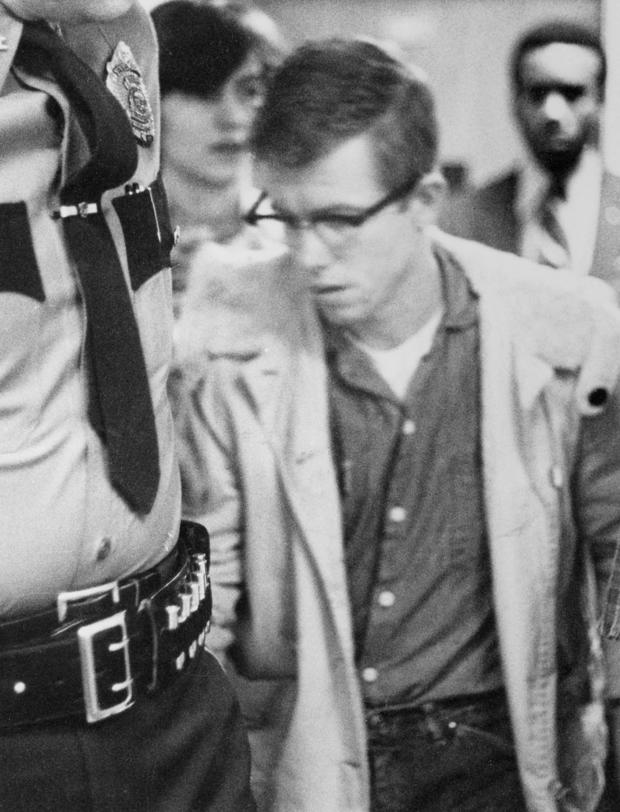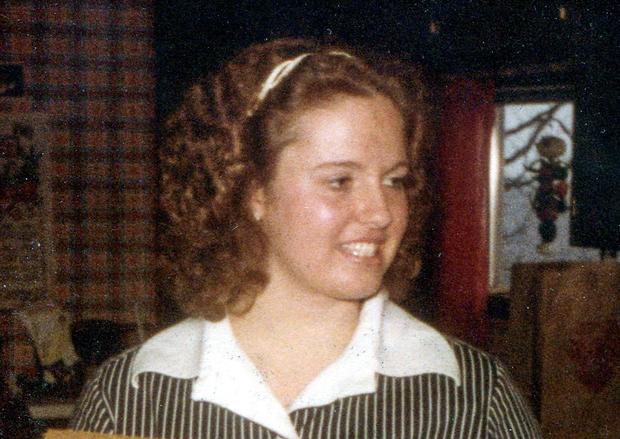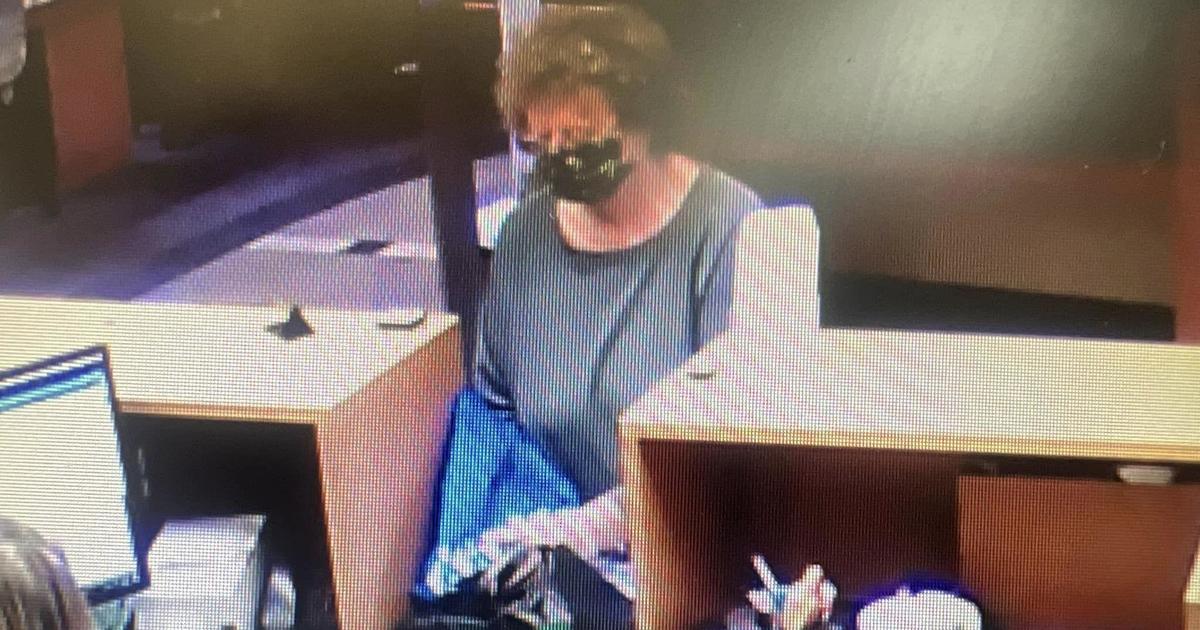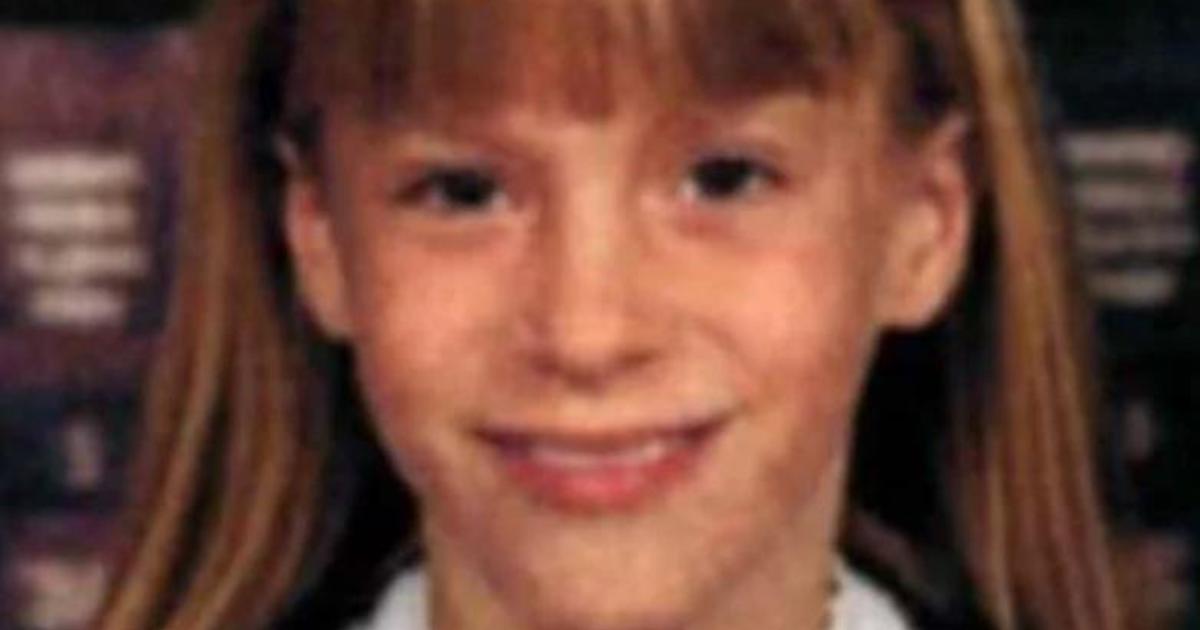Serial killer's victim identified after 37 years through genetic genealogy and a DNA match
A woman known for 37 years only as Horseshoe Harriet, one of dozen or so victims of a notorious Alaska serial killer, has been identified through genetic genealogy and a DNA match, authorities said Friday.
The victim was identified Friday as Robin Pelkey, who was 19 when she was killed by Robert Hanson in the early 1980s, the Alaska Bureau of Investigation's Cold Case Investigation Unit said. The Alaska State Troopers released a nearly 8-minute video describing the genetic genealogy process and the Pelkey cold case.
"I would like to thank all of the troopers, investigators, and analysts that have diligently worked on this case over the last 37 years. Without their hard work and tenacity, the identity of Ms. Pelkey may have never been known," Alaska Department of Public Safety Commissioner James Cockrell said in a statement.
Hansen, who owned a bakery, gained the nickname "Butcher Baker" for abducting and hunting down women - many of them sex workers - in the wilderness just north of Anchorage through the early 1980s, when the state's largest city was booming because of construction of the trans-Alaska pipeline.
Construction of the 800-mile pipeline offered good paying jobs for workers, but it also attracted those who wished to make money off of them, everyone from sex workers to drug dealers. Many of those people looking for fast money left as quickly as they came, and exotic dancers traveled a circuit along West Coast cities, making sudden disappearances commonplace.
Retired trooper Glenn Flothe, who helped put Hansen behind bars, told the Anchorage Daily News in 2008 that Hansen's victims initially included any woman who caught his eye, but he quickly learned that strippers and prostitutes were harder to track and less likely to be missed.
The 2013 movie "The Frozen Ground," starring Nicolas Cage and John Cusack, chronicled the troopers' investigation and capture of Hansen.
Hansen was convicted in the deaths of four women but confessed to killing several more, troopers said. At one point, he flew with investigators over an area north of Anchorage, where he pointed out where 17 of his victims were buried.
In 1984, Alaska State Troopers returned to those areas, where the remains of eight women were discovered. In total, 12 bodies have been found, and 11 of those have been identified, trooper spokesperson Austin McDaniel said.
The only person not yet identified is known only as Eklutna Annie, McDaniel said. Her body was found near Eklutna Lake just north of Anchorage.
Randy McPherron, an Alaska State Troopers cold case investigator, said Hansen "confessed to her murder and claimed he was his first murder victim."
Among the skeletal remains found in 1984, Pelsky was discovered lying on the ground near Horseshoe Lake, near the Little Susitna River just a few miles northwest of Anchorage, troopers said.
There was no ID on the body that became known as Horseshoe Harriet. Hansen told investigators she was a sex worker he abducted from downtown Anchorage sometime in the winter of 1983. He told investigators he flew her to the lake in his small airplane, murdered her and discarded the body. He didn't know her name or much else about her.
An autopsy confirmed the body was that of a white woman between the ages of 17 and 23. There were no missing persons reports that matched, and she was buried in the Anchorage municipal cemetery as an unknown.
The case was reopened in 2014, the same year Hansen died in prison at the age of 75.
The body was exhumed, and samples were sent to create a DNA profile, which was added to the FBI's national missing person database. It didn't provide an identification.
In September 2020, investigators made another attempt to identify the remains using genetic genealogy.
A bone sample was sent to a private lab and additional DNA was extracted and sent for Whole Genome Sequencing, troopers said. This data was then sent to another lab, where a DNA profile was generated and uploaded into a public access genealogy database in April.
Troopers said several close matches were found and used to create a family tree for the victim. Research indicated that the victim might be a woman named Robin Pelkey, who was born in Colorado in 1963, troopers said.
Troopers traced her to living in Anchorage in the early 1980s, but no record indicated she was alive after 1984.
Eventually close relatives were located in Arkansas and Alaska. Family members told troopers that Pelkey lived in Anchorage in the late 1970s, but moved to Arkansas as a teenager before returning to Alaska in 1981 to live with her father and stepmother.
Troopers said she wound up living on the streets of Anchorage but had vanished by late 1982 or early 1983.
Relatives told troopers they didn't know for certain why Pelkey's parents, who are now deceased, didn't report her missing.
A DNA match with a close relative in Arkansas confirmed Pelkey's identity and the family was notified in September. Through the troopers, family members said they did not want to be contacted by the media.
"Obviously, I'm very happy to have finally figured out who she is and give her family some closure," McPherron said. "Genetic genealogy has been quite a great leap forward in solving unsolved homicides but in also identifying people, so this is very satisfying to see it finally come together like this."
Troopers have purchased a new grave marker for Pelkey, McDaniel said.





